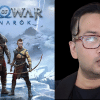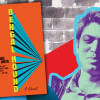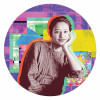Unravelling Bangali feminism and female rage

Feminism and literature share a profound connection as literature gives voice to the experiences of women, allowing us to understand their perspective. However, despite the abundance of information in the technological age, the promotion of feminist books remains a challenge in Bangladesh, often facing criticism from conservatives.
In an interview with The Daily Star, author and artist Dr Razia Sultana Khan talks about women-centric characters, and exploring Bangladeshi culture and feminism through her book, Palki and Other Tales of Seduction (Ankur Prakashani, 2012). Themes of feminism, oppression, and cultural norms are woven into the narrative, including supernatural elements from South Asia's storytelling tradition.
So…what inspired you to write about the experiences of Bengali women and their struggles with feminism, oppression, and rage?
Right, okay. So, I am Bangladeshi. I'm a woman. Maybe not as oppressed as most people but I see it all around me. Everyday. Relatives, friends, and especially our domestic workers. All of them have stories and I love listening to their stories. It's…I love it in the sense that I get so much information but it's very depressing. So many of us have similar problems. Same thing. And sometimes I think you know, like, is this what happens to all of us? So, I don't know how these stories came about but you know some of these stories are so fascinating I thought I should put them down.That's how it started. Because I felt like not everyone has a voice. I can't be that voice to any and I don't want to take over their struggle, but if I can put it down, I might be of some help.
Were there any specific literary influences that shaped your writing style or the stories in the book? Like Tagore?
"Not Tagore exactly but other female writers, South Asian writers, not just Indian by the way–Chinese American, Japanese American, for example, Maxine Hong Kingston and her book No Name Woman (1976). And these writers have similar tones. It's always the same story. Same stories of oppression, stories of fighting, survival, etc. The thing is what I want to do is give my women some agency.
The title of your book includes the word "seduction." How does this concept play a role in the stories you present?
Alright so one of the stories is actually called "Seduction". And this is not the sort of seduction that is in a romantic manner. This [is the kind of] seduction [where] the British seduced us to fall in love with their tea and pay for it. Back then we didn't drink tea. We drank milk, lemonade, Badam, water, but not tea. But they wanted their tea to be sold here. My grandmother was a born storyteller, and when I was a child she told me an anecdote about the British enticing the population of their colony in Bengal by offering free tea to the local residents in little clay cups around 4 o'clock. The British had discovered that the areas in the Northeastern parts of India were conducive to tea plantation, and though the best tea was shipped away to Britain, it was economically prudent to have a flourishing local market. The story "Seduction" originated from that.
Female oppression and female rage are powerful themes in your book. Can you elaborate how these themes are manifested in the lives of Bengali women? How do societal norms and cultural factors contribute to these experiences?
The thing is that rage is very much there but the way we are brought up, we aren't allowed to express that rage. It is stifled. And I think you know, I hate to say this, but I think it's worse for the people who are more educated because then you know what's happening but still you find yourself stuck. I don't want to use the word class but if you go to the upper class, the society is waiting there for you to make one wrong move, and all of this reflects negatively on the woman. But for the underclass, you can scream and rage all you want and no one will listen.
Throughout your book, you highlight the resilience and strength of Bangladeshi women. Must women be resilient?
'Resilient' is when you are flexible. Resisting and being resilient are not the same. 'Resilient' is not when you resist, but you make do, you manipulate and you take your way out. But resisting, is standing up. There's one story if you remember, "The Good Wife"; the part where she leaves out things for her husband to beat her up with. If he comes home and wants to whip her, he shouldn't have to say "Where is the whip?" Because back then, the husband was something of a god or the master. The women were good wives and a good wife's happiness lied in the afterlife. So till now, "the good wife" in my story was resilient but in the end she resists, she snaps and leaves her husband. So she resists that domination over her.
While resilience can be a survival mechanism to navigate difficult circumstances, it may not always lead to lasting change or empowerment. Resisting, on the other hand, involves confronting the source of oppression and taking a stand against it. In real life, many women in patriarchal societies demonstrate resilience in the face of adversity. They navigate oppressive circumstances and find ways to cope and adapt. However, as portrayed in Dr Khan's story, "The Good Wife", some women eventually reach a point where they recognise the need for change and empowerment. They decide to resist the systems that subjugate them and challenge the norms that perpetuate their oppression.
What do you hope readers will take away from reading Palki and Other Tales of Seduction?
What I hope is, they see the oppression that's going on and when you read about somebody's life you have a view into their lives. And then you realise that okay, this shouldn't have happened. Sometimes you don't see it when it's happening to you. When it's happening to somebody else, it's out there so you see and you learn from them. So I hope the girls can see that they can stand up [for themselves].
Dr Razia Sultana's tales encompass the female experience through cultural, temporal, and societal lenses, addressing norms, oppression, folklore, symbolism, and influences on mindsets. The characters are diverse and multi-dimensional, showcasing the challenges women face against patriarchy's barriers in each era. For instance, the narrative "Palki" portrays Kolila's struggle with societal expectations as a new bride, reflecting traditional constraints, while "Proxy" features Urmi, a modern feminist challenging norms for her cousin, reflecting contemporary struggles. Both tales emphasise systematic oppression and female rage. The book not only highlights the enduring resilience of Bengali women but also raises questions about gender equality and empowerment. It challenges us to view the world and literature through a feminist lens, where women's perspectives are equally valid and acknowledged.
Kazi Raidah Afia Nusaiba is an aspiring journalist who spends her time reading and researching.

 For all latest news, follow The Daily Star's Google News channel.
For all latest news, follow The Daily Star's Google News channel. 











Comments